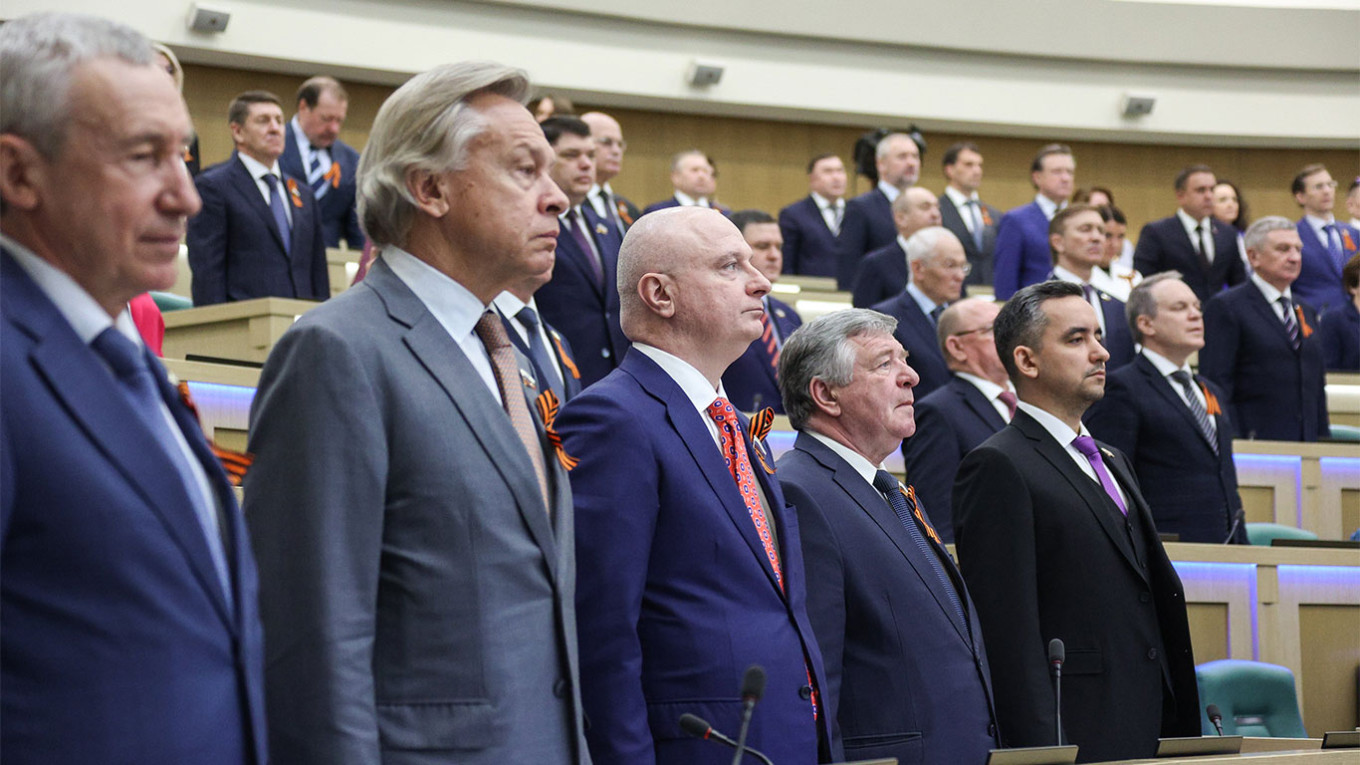President Vladimir Putin signed the bills into law on April 28.
Russian senators voted Wednesday to stiffen punishments of dissent by adding life sentences for treason and stripping citizenship for anti-war speech.
The amendments to Russia’s Criminal Code are being advanced amid an intensifying crackdown on the few Kremlin critics who have not fled the country 14 months after its troops invaded Ukraine.
Russia’s upper house of parliament, the Federation Council, passed a bill increasing the maximum penalty for "high treason" from 20 years to life imprisonment.
Treason, as well as “discrediting” the Russian military, is also the charge under which authorities could revoke acquired Russian citizenship when the bill becomes law.
Senators also increased maximum sentences for convictions on “terrorism" and sabotage charges in their weekly session.
In addition, they moved to impose five-year prison sentences for complying with International Criminal Court (ICC) orders after it issued an arrest warrant for President Vladimir Putin last month.
The bill will become law as soon as it receives Putin's signature.
Human Rights Watch has criticized the Russian lawmakers’ steps for eradicating opposition to the war in Ukraine and “instilling fear in the Russian people.”
The independent rights monitoring group OVD-Info criticized the text of the amendment as "very broad" and could penalize "facilitating the execution of judicial decisions as well as the investigation of war crimes."
Russian troops have been accused of multiple atrocities during Moscow's offensive in Ukraine.
Russian lawmakers defended the sweeping amendments as “protection” against the perceived threats from Ukraine and its Western allies.
AFP contributed reporting.
A Message from The Moscow Times:
Dear readers,
We are facing unprecedented challenges. Russia's Prosecutor General's Office has designated The Moscow Times as an "undesirable" organization, criminalizing our work and putting our staff at risk of prosecution. This follows our earlier unjust labeling as a "foreign agent."
These actions are direct attempts to silence independent journalism in Russia. The authorities claim our work "discredits the decisions of the Russian leadership." We see things differently: we strive to provide accurate, unbiased reporting on Russia.
We, the journalists of The Moscow Times, refuse to be silenced. But to continue our work, we need your help.
Your support, no matter how small, makes a world of difference. If you can, please support us monthly starting from just $2. It's quick to set up, and every contribution makes a significant impact.
By supporting The Moscow Times, you're defending open, independent journalism in the face of repression. Thank you for standing with us.
Remind me later.






